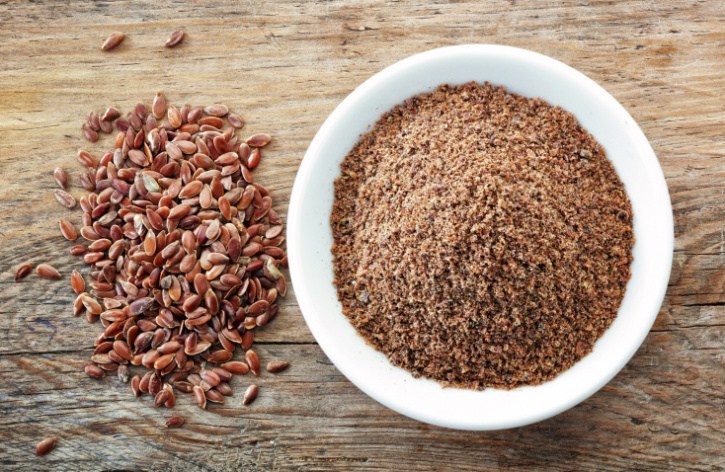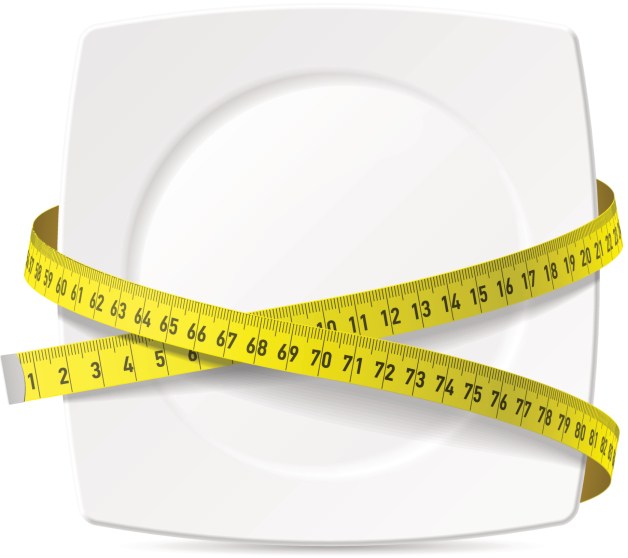Feeling Lousy, Anxious, Tired, Or Unfocused? It Could Be Your Diet

Recently, I spent the day teaching at one of the largest chemical addiction recovery programs in the country. It was a powerful and moving experience. Nearly 18 months ago, the center adopted The Omni Diet, an eating plan I created with a simple 70:30 plant-to-protein ratio and a focus on whole, living foods.
I was curious to see what affect this had since my last visit. These are some tough customers—most of them have criminal records, and many are court-ordered to be in the program for up to a year.
Could changing their diet change the way they viewed the world? Could it change the way they viewed themselves?
You bet.
I was moved to tears by testimonials from patients. Many, including the man pictured above,mentioned dramatic weight loss of up to 70 pounds, but more importantly, most of them wrote about changes in the way they felt—the clarity of mind and focus they regained.
How we perceive the world is heavily influenced by the foods we choose
Food directly impacts neurotransmitters in the brain and thus can have an immediate effect on your mood. But when you eat foods that impact your neurotransmitters and your moods on a regular basis, your diet begins to impact how you think and feel in the long term.
A low-quality diet (for example, one heavy on fast-food burgers and fries, which is what the men and women at the rehab center told me they had been accustomed to eating) actually changes the chemistry and function of your brain. If you feel lousy, depressed, foggy, tired, and unable to make empowering decisions, it may not all be psychological.
In my book, The Omni Diet, I discuss the various neurotransmitters and their roles. Serotonin, for instance, is responsible for mood stability, sleep regulation, appetite control and social engagement. When levels of this neurotransmitter drop, the results can be depression, anxiety and negativity.
It's also when you crave carbohydrates – pasta, bread, chocolate – because these foods raise serotonin levels, temporarily. Fortunately, complex carbs such as apples and sweet potatoes work the same magic and don’t set you up for more cravings.
Likewise, dopamine helps to increase focus, motivation and attention. Eating small amounts of protein throughout the day can help increase dopamine and stabilize blood sugar, which gives people who are recovering from addictions the ability to make better decisions and not cave in to impulses.
If you have any doubts about the effects of food on the brain, take a look at what science says about the subject:
Recent research from France has shown that eating something sweet can actually be more rewarding than cocaine. In a study published in the journal PLoS One, researchers took two groups of rats and let them choose between water sweetened with saccharine and intravenous cocaine.
Amazingly, 94% of the animals preferred the sweetened water to the drug. Then they repeated the experiment and used sucrose (plain old table sugar) instead of saccharine. The results were the same, attesting, to the addictive potential of sugar.
Alcohol and alcoholism are known risk factors for hypoglycemia, low blood sugar, which can cause confusion, trouble thinking (brain fog), shakiness, anxiety, sleeping problems and more. (Interesting, isn’t it, that the symptoms of hypoglycemia are similar to those of intoxication?) Hypoglycemia leads to cravings for alcohol as well as for simple carbs.
A growing body of research suggests that a decline in a brain protein called BDNF could be responsible for mental disorders ranging from depression to Alzheimer’s disease. BDNF stimulates the growth of new neurons and helps support existing brain cells.
We know that diets high in sugar reduce BDNF and that a decline in BDNF is associated with poor cognitive performance, depression, obsessive compulsive disorder, memory loss, dementia, and even Alzheimer’s disease. Food for thought?
Let’s let the participants have the final word:
Participants told me inspiring stories about how they lost weight, felt far less impulsive, and were suddenly able to think clearer once they left the brain fog their old diet had induced.
Here is my personal favorite testimonial from T.E., who lost 55 pounds and was finally able to finish his GED, now that he has the focus and concentration. (I can’t use real names here to protect the privacy of the people, but I have permission to share this story.)
“When I came here I was depressed, overweight, gloomy, foggy .... all the negative feelings you could think of. Now my mind is clear, I’m faster, energized, I go to sleep earlier, jog 2.5 to 5 miles twice per week. My life is definitely different and I am so excited about the new me. My family was ASTONISHED when they saw me. I’m going to try and implement this eating program in my home… I just want to close with this:
"I was a mess, but now I am a message
I have been tested, but now I have a testimony
I was a victim, but now I am victorious
I went through trials, but now I am TRIUMPHANT!"
-
Does The Size Of Your Stomach Shrink When You Eat Less?
Most of us know that the
-
The Painful Truth About Weight Loss And Dieting
All right, lets get down to it. Who of us doesnt already know how to
-
Weight Loss: A Side Effect of Adaptive Wellness
Changing any behavior has its challenges. Changing the way you have
-
Are You An Emotional Eater?
All of us experience occasional emotional eating. Celebrating with
-
Slim Down Successfully And Feel Better About Your Weight!
What are your reasons for wanting to lose weight? Are you always
-
Recognizing the Symptoms of Anorexia Nervosa
Each year, thousands of women suffer from one form of harmful eatin
- DON'T MISS
- 3 simple keys to choosing a Juicer-Best Juicer To Buy for Your Needs
- Weight Loss Plans For Teens - Learn To Find Best Plan!
- The Secrets Behind Successful Diet Tips Explained
- Fast Weight Loss Workouts
- Demystifying the Powers of Hypnosis
- My Unforgettable South Beach Diet Experience
- Several Forgotten Factors In Obesity
- Will Hoodia Gordonii Help You Lose Belly Fat
- Safe Tips For Seeing Fast Weight Loss
- Green Tea Diet: Weight Loss And Other Health Benefits Of Green Tea




